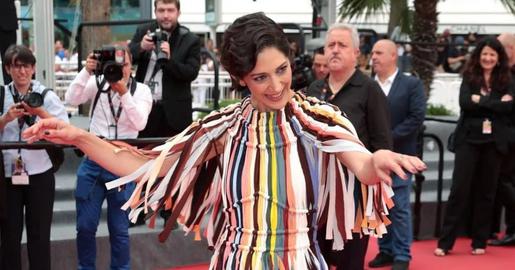Dear friends
I don’t think many of us were surprised when President Trump criticized the Iranian regime during the United Nations General Assembly, saying: “The Iranian government masks a corrupt dictatorship behind the false guise of a democracy.” In fact, many people would’ve liked to have been surprised by conciliatory words from the president, including American and European diplomats and Iranian reformists. But the president repeated what he said during the campaign and since the election.
Trump’s rhetoric against the nuclear deal is like music to the ears of Iranian hardliners, who also think it’s “the worst deal ever” and want to get rid of it bigly. So it didn’t take long for Iranian officials to insult and mock the American president. Forgetting their own Supreme Leader’s insulting comments about regional and world leaders, they called Trump “a cowboy,” “naïve” and “irresponsible.” The next day, Iranian president Hassan Rouhani tried to shame Trump donning his most sophisticated democratic guise and using calm rhetoric. After going through a series of lies about the economic development of Iran, Rouhani accused Trump of disseminating “wrong information and baseless accusations against Iranians.”
Rouhani’s speech on Wednesday presented a counter-attack, not only against what Foreign Minister Mohammad Javad Zarif called the president’s “ignorant hate speech with no place in the 21st-century UN,” but also against his own opponents in Iran. He painted a false image of a solid, thriving Iran with a plethora of business opportunities and a commitment to promoting citizens’ rights. He pledged a commitment to sovereignty while insisting Iran was uninterested in dominance or disengagement. “Our ambassadors are our poets," he told the General Assembly, ”With Rumi we've come across the Atlantic. With Saadi we've conquered heart of Asia.”
Of course, Mr. Rouhani didn’t speak about dozens of poetry and prose writers who are languishing in Iranian jails. He didn’t talk about the jailed journalists and businessmen and activists, and about the treatment of the Baha’i religious minority. I was talking to a European business lawyer after Rouhani’s speech, and she was wondering how Rouhani could really be presenting Iran as a healthy business environment when the Revolutionary Guards continue to dominate and monopolize so much of Iran’s economy.
Much of the world will be watching to see what happens with the nuclear deal, arguably Rouhani’s biggest achievement so far. IranWire’s Arash Azizi, who is at the UN, has learned that the US government is lobbying on the sidelines of the UN to build a “coalition of the willing,” forging closer alliances with countries that oppose the deal. As we know, Trump has a lot in common with Iranian hardliners, who flatly state that there will be no new negotiations. So how will these new behind-the-scenes conversations shape the future of Iran’s relationship with the international community? As well as current analysis on this, to provide a more comprehensive context, we’re also linking to commentary about Iranian officials at the UN in previous years.
We’ve had some good news this week: on Tuesday, Baha’i writer, poet and teacher Mahvash Sabet was released from prison after serving a 10-year sentence. She’s the first of seven prominent Baha’is to be released, with the other six due to finish their sentences soon, and we have an exclusive interview with her. Despite international celebrations, her release does not signal freedom for Iran’s largest religious minority. The Baha’is continue to face harsh discrimination, and are denied the right to study, work and practice their religion.
As much as this week is about the state of the world today and Iran’s place in it, hard questions about the past also remain. Online and off, this week has seen fresh discussions about Iran’s mass executions of political prisoners in 1988, and the fact that the families of those killed are still without the full details of what happened to their loved ones. Given that plans are underway to destroy the graves of some political prisoners in one of Tehran's biggest cemeteries, it’s clear that whatever the current issues, there are many unresolved ones to answer for as well.
As always, please let me know if you have any comments.
Warm regards
Maziar
visit the accountability section
In this section of Iran Wire, you can contact the officials and launch your campaign for various problems




















comments